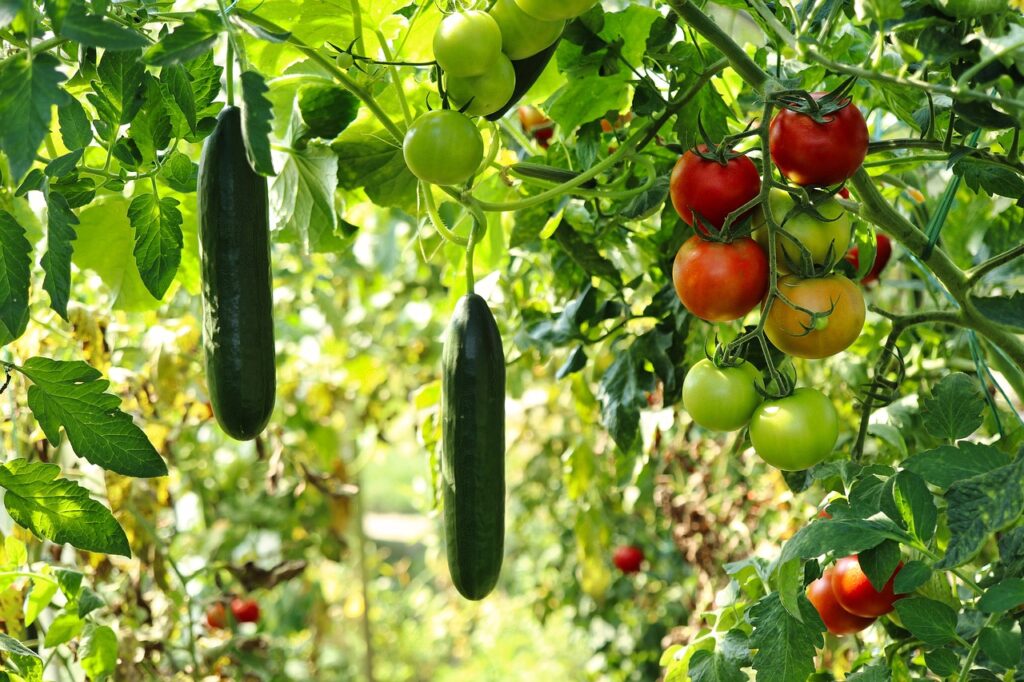The farm-to-table movement has gained significant traction in recent years as more consumers seek fresh and locally sourced food. For farmers and entrepreneurs, this trend presents an opportunity to build a sustainable business that connects directly with customers.
Starting a farm-to-table business is not that much different from setting up any type of business. But, you will be able to do more if you have a metal barn.
A metal barn can be an essential asset in establishing a farm-to-table operation, offering durability, flexibility, and cost-efficiency. It does not matter if you plan to grow organic produce, raise livestock, or produce artisanal goods, a well-designed metal barn can serve as the foundation of your farm-to-table business.
Planning Your Farm-to-Table Business
Before utilizing your metal barn for a farm-to-table venture, it’s crucial to develop a solid business plan that lays the groundwork for long-term success. Start by defining your target market and identifying the specific products you want to offer. Will you focus on organic produce, dairy products, free-range eggs, or homemade baked goods? Understanding the demand in your local area can help you determine which products will be the most profitable. Additionally, consider the best sales channels for reaching customers. Many farm-to-table businesses rely on direct-to-consumer sales through farmers’ markets, community-supported agriculture (CSA) programs, online platforms, and farm stands. Some also supply local restaurants, grocery stores, and co-ops that prioritize locally sourced goods.
Beyond identifying your market, it’s important to research the financial aspects of your business. Determine your start-up costs, projected expenses, and potential revenue streams. Will you need additional equipment such as refrigeration units, processing stations, or delivery vehicles? Factoring in these costs will help you set competitive yet sustainable pricing for your products. A well-structured financial plan can also be beneficial if you decide to seek grants, loans, or investors to fund your business. With the growing demand for sustainable, locally sourced food, securing funding for a farm-to-table venture may be more feasible than you think.
Understanding local regulations is another critical aspect of launching a farm-to-table business. Depending on your location, zoning laws, health codes, and licensing requirements may dictate how you operate. Selling fresh dairy products, for instance, often requires additional permits and routine inspections to meet food safety standards. If you plan to process meats, preserves, or baked goods, you may need a commercial kitchen that meets health department guidelines. Researching these requirements in advance can prevent costly delays and ensure that your business complies with all legal standards from the start.
Designing Your Metal Barn for Maximum Efficiency
A metal barn provides a versatile structure for a farm-to-table business, but its layout and features should be thoughtfully designed to maximize efficiency. Consider how you will divide the space to accommodate different functions such as food processing, cold storage, packaging, and customer interaction. Creating designated areas for these tasks can streamline your workflow and prevent bottlenecks that slow down operations. For example, having a separate space for washing and sorting produce ensures that harvested goods are cleaned before storage or sale.
Ventilation, insulation, and climate control are also crucial factors to consider. If you store perishable goods like dairy, meats, or freshly harvested produce, maintaining the right temperature and humidity levels is essential for preserving quality. Installing proper ventilation prevents mold growth and helps regulate air quality, while insulation can keep the space comfortable in extreme weather conditions. This is particularly important if you plan to operate year-round or host farm tours and events. Investing in energy-efficient heating and cooling systems can also help lower utility costs and reduce your environmental impact.
Additionally, designing a welcoming and functional retail space within the barn can enhance customer experience. Whether you plan to have a small farm store, a pickup area for CSA members, or a tasting room for artisanal goods, the layout should encourage easy navigation and engagement. Shelving, display cases, and refrigeration units should be arranged in a way that highlights your products while maintaining a natural flow of traffic. A thoughtfully designed space not only improves efficiency but also contributes to the overall success and professionalism of your farm-to-table business.
Growing and Storing Fresh Produce
For farm-to-table businesses focused on organic fruits and vegetables, a metal barn can serve multiple functions beyond storage. It can act as a greenhouse for seedlings, provide shelter for delicate crops, and house equipment for planting and harvesting. Many farmers use their barns to extend their growing season by implementing hydroponics, aquaponics, or vertical farming systems, which allow them to cultivate fresh produce year-round. These innovative growing methods require controlled environments, but with the right setup, they can significantly boost productivity.
Proper storage is just as important as the growing process itself. Fruits and vegetables must be stored at optimal temperatures and humidity levels to maintain freshness before they reach consumers. Installing climate-controlled rooms with shelving or bins designed for different types of produce can prevent spoilage and reduce waste. Some farmers also invest in root cellars or walk-in coolers to keep harvested goods in peak condition. Having an organized storage system makes inventory management easier and ensures that products are always ready for sale.
In addition to storing produce, a metal barn can serve as a packaging and distribution hub. Once crops are harvested, they need to be cleaned, sorted, and packed for delivery. Setting up designated workstations with sinks, drying racks, and packing tables can streamline this process. If you plan to distribute directly to customers or supply local businesses, having an efficient distribution system can enhance customer satisfaction and strengthen your farm-to-table brand. That is whether through pickup points, delivery routes, or subscription boxes.
Raising Livestock for Farm-to-Table Sales
If your farm-to-table business includes meat, dairy, or egg production, a metal barn offers an excellent shelter for livestock. Its sturdy construction provides protection against harsh weather conditions, ensuring the health and safety of your animals.
Proper ventilation and waste management systems are crucial for maintaining hygiene and preventing disease. You may need dedicated sections within the barn for feeding, milking, egg collection, or butchering. Additionally, cold storage solutions will be necessary to keep meat and dairy products fresh before they reach consumers.
Food Processing and Packaging Within Your Barn
Processing food on-site can add value to your products, allowing you to offer items such as homemade jams, cheeses, baked goods, or bottled sauces. A well-equipped metal barn can house food preparation areas, storage for ingredients, and stations for packaging.
Investing in commercial-grade equipment, such as refrigeration units, food processors, and sterilization stations, ensures that your products meet safety and quality standards. If your business involves preparing ready-to-eat meals, a certified kitchen may be required to comply with food safety regulations.
Selling Directly to Consumers
A metal barn can also serve as a storefront, providing a rustic yet professional space where customers can purchase fresh products directly from your farm. Creating a farm stand within the barn allows visitors to experience the freshness of your goods while supporting local agriculture.
To enhance customer experience, consider incorporating an educational component, such as farm tours, cooking demonstrations, or workshops on sustainable farming practices. Engaging with your community strengthens customer loyalty and builds trust in your brand.
Expanding With an Online Presence
In today’s digital age, having an online presence can significantly boost the success of your farm-to-table business. An e-commerce website, social media marketing, and email newsletters can help you reach a broader audience and drive sales.
Using your metal barn as a fulfillment center for online orders allows for efficient inventory management and streamlined delivery logistics. Whether you offer local pickup, farm-to-door delivery, or nationwide shipping for packaged goods, a well-organized barn can support the growth of your online business.
Sustainability and Eco-Friendly Practices
Consumers interested in farm-to-table products often value sustainability. Implementing eco-friendly practices in your metal barn operation can appeal to environmentally conscious customers while reducing operational costs.
Solar panels, rainwater collection systems, and composting programs contribute to a greener business model. Additionally, using biodegradable packaging and reducing food waste align with sustainable farming principles that many consumers appreciate.
Conclusion
A metal barn is a valuable asset for launching and growing a farm-to-table business. Its durability, adaptability, and cost-effectiveness make it an ideal space for farming, food processing, storage, and direct sales. By carefully planning your business model, ensuring regulatory compliance, and optimizing your barn’s design, you can create a thriving farm-to-table operation that delivers fresh, high-quality products to your customers.
As the demand for locally sourced food continues to rise, investing in a farm-to-table business with a well-structured metal barn positions you at the forefront of this growing movement. With the right strategy and commitment to quality, your farm can become a trusted source of fresh, sustainable food in your community.

